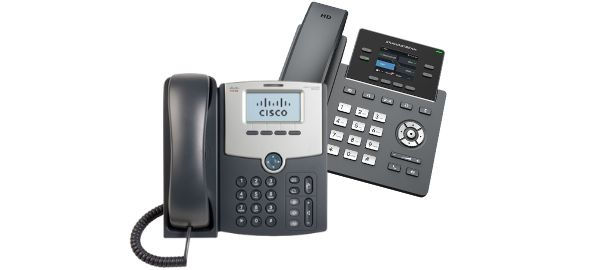Is a business telephone system secure for confidential calls in the UK?
- VOIP Experts
- Dec 26, 2024
- 3 min read

In the modern business world, communication is essential, and businesses are increasingly relying on advanced telephone systems to handle day-to-day operations. Whether you’re using a traditional landline, a cloud-based solution, or VoIP (Voice over Internet Protocol) technology, security should always be a top priority, especially when it comes to confidential or sensitive calls. But is a business telephone system secure enough for these types of communications, particularly in the UK? Let’s explore the security features of modern telephone systems and how they ensure privacy and confidentiality.
The Importance of Secure Communication
For many businesses, confidential communication forms the core of their operations. Whether it’s discussing sensitive financial data, legal matters, or personal employee information, maintaining the confidentiality of calls is essential. In the UK, businesses must adhere to strict data protection laws, including the GDPR (General Data Protection Regulation), which holds companies accountable for safeguarding the personal data of their customers and employees.
Traditional Phone Systems vs Cloud Business Phone Systems
Traditional telephone systems often rely on physical infrastructure and analogue lines, which are increasingly being phased out in favour of more flexible solutions. While these systems can be relatively secure, they are vulnerable to physical breaches, such as wiretapping or equipment theft. Additionally, traditional systems lack the encryption capabilities that modern cloud-based systems offer.
In contrast, a cloud business phone system offers enhanced security by transmitting voice data over the internet, where calls are encrypted during transmission. Cloud-based phone systems also benefit from continuous security updates and monitoring by service providers, ensuring that your system remains protected against evolving cyber threats. Furthermore, cloud solutions allow for regular backup and disaster recovery options, ensuring that confidential business data is not lost in the event of an emergency.
VoIP Solutions and Security Features
Another popular option for businesses is VoIP solutions, which are internet-based communication systems that convert voice into digital signals for transmission over IP networks. While VoIP systems provide cost-effective and efficient communication, they also introduce new security challenges, particularly if the network is not properly protected.
However, reputable VoIP providers use advanced security protocols to protect calls. These include end-to-end encryption, which ensures that the voice data transmitted during a call is scrambled and unreadable to anyone without the correct decryption key. Many VoIP providers also offer additional security features, such as multi-factor authentication (MFA), firewalls, and intrusion detection systems to protect against unauthorized access.
Encryption is one of the most important features when it comes to securing confidential calls. It ensures that even if a hacker intercepts the data, they will not be able to understand the content. VoIP solutions also allow businesses to set up secure connections between the telephone system and employee devices, further preventing eavesdropping or data breaches.

Managing Risks and Mitigating Vulnerabilities
Like any technology, business telephone systems are not immune to potential security risks. It’s important for businesses to take proactive measures to ensure their communication channels remain secure:
Choose a Reliable VoIP Provider: Selecting a trustworthy and experienced VoIP provider is essential for ensuring the security of your telephone system. Look for providers that offer encryption, security monitoring, and compliance with UK data protection regulations.
Use Strong Passwords and Multi-Factor Authentication: Ensure that all employees use strong, unique passwords to access their business phone system. Implementing multi-factor authentication adds an extra layer of security, making it more difficult for hackers to gain unauthorized access.
Regular Software Updates: Ensure that your phone system’s software is regularly updated. This includes patching any security vulnerabilities and keeping your system up to date with the latest security protocols.
Employee Training: Educate employees about potential threats like phishing and social engineering, which can often be used to exploit telephone systems. Ensuring that staff are aware of how to identify and report suspicious activity is crucial in maintaining system security.
Secure Network Infrastructure: If you’re using a cloud business phone system or VoIP, ensure that your network is secure. This means using a VPN (Virtual Private Network), strong firewalls, and intrusion detection systems to prevent unauthorized access.
Birmingham:
Beech House, Greenfield Crescent, Edgbaston, B15 3BE
Tel: 0203 150 2227








Comments